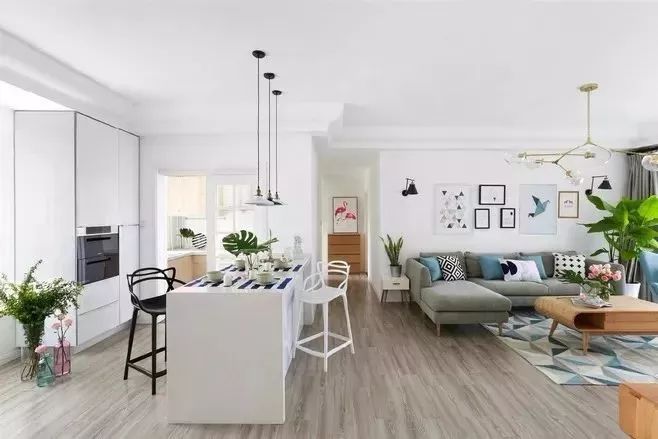 Feng Shui Bedroom
Feng Shui Bedroom
How to Arrange Your Bedroom with Feng Shui for Better Luck & Wellness.
Living Room Feng Shui Tips
The living room is the face of a home—a space for entertaining guests and a place where family members gather to chat and bond. As such, it’s no surprise that feng shui plays a significant role in this area.
Many believe that the feng shui of the living room can influence the luck and fortune of every family member. Therefore, the arrangement and placement of objects in the living room are crucial. Below are some essential feng shui principles to keep in mind.

The diagonal corner of the living room from the entrance is considered the "wealth corner." If there are pillars, recessed areas, or windows in this spot, use plants, a bar cabinet, or a display cabinet to block them. This prevents wealth energy from leaking out while enhancing the prosperity of the space—a win-win.
The living room should have an open, unobstructed flow. If the entrance directly faces bedroom doors or the back door, it creates a "front-in, back-out" effect, making it difficult to accumulate wealth. Similarly, avoid having pathways that run straight through the living room, as this aligns with the feng shui saying: "A front and back passage leads to lost wealth and people."
Since the living room is a shared space, partitioning it into a bedroom can create a sense of isolation for the person staying there. For unmarried individuals, this may even lead to difficulty finding a suitable partner.
Sofas should ideally be arranged as a complete set. While some may place two sets together or add extra chairs due to a large space, this is not advisable. A unified sofa set symbolizes family harmony and unity.
If the living room has an overhead beam, the psychological pressure can make occupants feel suppressed in their social and professional lives. To counter this, consider using a false ceiling, hanging auspicious decorations (like fortune-bringing mouse ornaments), or designing the space as two separate living areas.
The living room should be a place where positive energy gathers, not a passageway. If it’s placed in a high-traffic zone, family gatherings and guest interactions may be disrupted, negatively impacting relationships and career prospects.
The living room floor should be even. Avoid excessive steps or multi-level designs, as uneven flooring can lead to unstable fortune and life obstacles.
A bright living room attracts good fortune, so avoid placing too many dense plants on the balcony that block natural light. Also, opt for lighter wall colors instead of dark, gloomy tones.
Since the living room is a place for family bonding, round decorations—such as lighting fixtures, ceiling designs, and accessories—help create a warm, lively atmosphere. In feng shui, circles represent positive energy and movement.
Upon entering the house, the living room should be the first visible space, with bedrooms, kitchens, and other areas positioned further back. Reversing this layout creates a wealth-draining effect.
The feng shui principle of "favoring curves, avoiding straight lines" applies here. A foyer or low cabinet between the main door and living room helps slow and circulate energy, allowing prosperity to accumulate. It also adds privacy, symbolizing lasting blessings.
An ideally shaped living room is square or rectangular, with seating areas avoiding sharp corners. If there are protruding corners, place potted plants or furniture to soften them. For L-shaped living rooms, use furniture to divide the space into two balanced sections.
By following these feng shui guidelines, you can create a harmonious, prosperous living room that benefits the entire household.